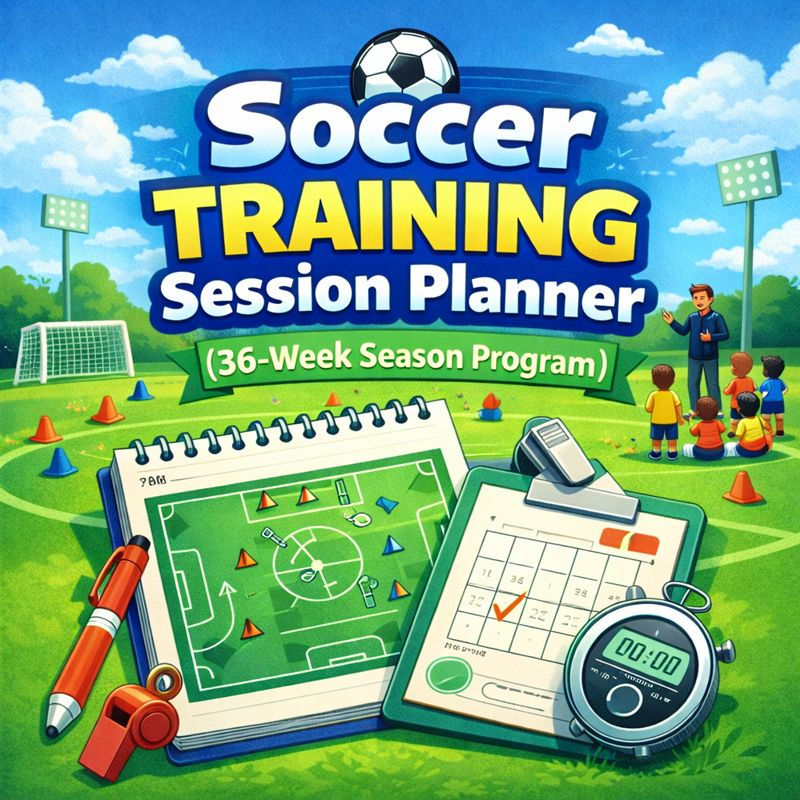How to Avoid the Plateau Effect from Overtraining
- Ritchie Semple
- Oct 17, 2019
- 2 min read
Updated: Oct 23, 2019
The Plateau Effect - Are you overtraining your soccer players?
Overtraining can affect soccer players both physically and mentally, and if it reaches the point of “plateau effect”, it can actually cause cellular-level injury that results in a breakdown of the body’s defences against illness and nervous disorders.
“The plateau effect is a force of nature that lessens the effectiveness of once effective measures, similar to the concept of diminishing returns. A person enters into a period where there is no improvement or a decrease in performance.”
The physical and mental demands placed on football players can eventually lead to diminished performance. Heavy and prolonged training, tournaments, matches, etc, may bring about what is known as overtraining syndrome, staleness or burnout. Furthermore, too many games within a short period of time can also lead to poor performance and increase the chances of illness or injury.

Physical symptoms include:
· Decreased performance
· Inability to meet previously attained performance standards
· Prolonged recovery
· Decreased muscle strength
· Loss of coordination
· Changes in heart rate
· Decreased body fat
· Chronic fatigue
· Loss of appetite
· Insomnia
· Headaches/ nausea
· Muscle soreness or tenderness
Psychological symptoms include:
· Feelings of depression
· General apathy
· Decreased self-esteem
· Emotional instability
· Difficulty in concentrating
· Fear of competition
· Giving up under pressure
Health symptoms include:
· Increased susceptibility to colds and allergies
· Flu-like illnesses
· Minor scratches heal slowly
· Swelling of lymph glands
· One-day colds
· Bacterial infection
How to Avoid the Plateau Effect
Warm-up’s and Cool-down’s
The importance of Warming up and cooling down properly cannot be overstated, allowing sufficient time for the player’s muscles to gradually adjust to changes in their workload prior to training and competitive matches. This is also vitally important at all day tournaments or on a soccer tour with a compact intense itinerary mixed in with jet lag.
Nutrition
Football players expending more energy should increase their carbohydrate intake. However, it is important that players maintain proper protein, vitamin and mineral levels.
Hydration
Water is essential in cell function and therefore, hydration is critical to athletic performance. Make sure that players are getting proper hydration before, during, and after play. Drink BEFORE you feel thirsty.
Rest
Rest periods allow the body to naturally heal and recover. Rest is a part of the process by which the body adapts to exertion. It is important to include regular scheduled rest days. In addition, if players begin to feel that their strength or endurance is weakening, but they are neither sick nor injured, a period of rest may be needed.
#soccer #soccertour #soccercoach #soccerplayer #soccermom #soccertourtoengland #totalfootballexperience #usayouthsoccer #youthsoccer #ussoccer #usa #spain #portugal #england #footballtour #football #madrid #soccerlife #soccertourto #usyouthsoccer #memoriesforlife #soccergame #superyleague #soccergirl #girls #soccerboy #boys #tour #soccercoaching #DOC #soccercoaches #tournament #tournaments #youthsoccer #youth #junior #europe #paris #france #barcelona #lisbon #europe #tour #tours #abroad #ncaasoccer #soccergirls




Comments